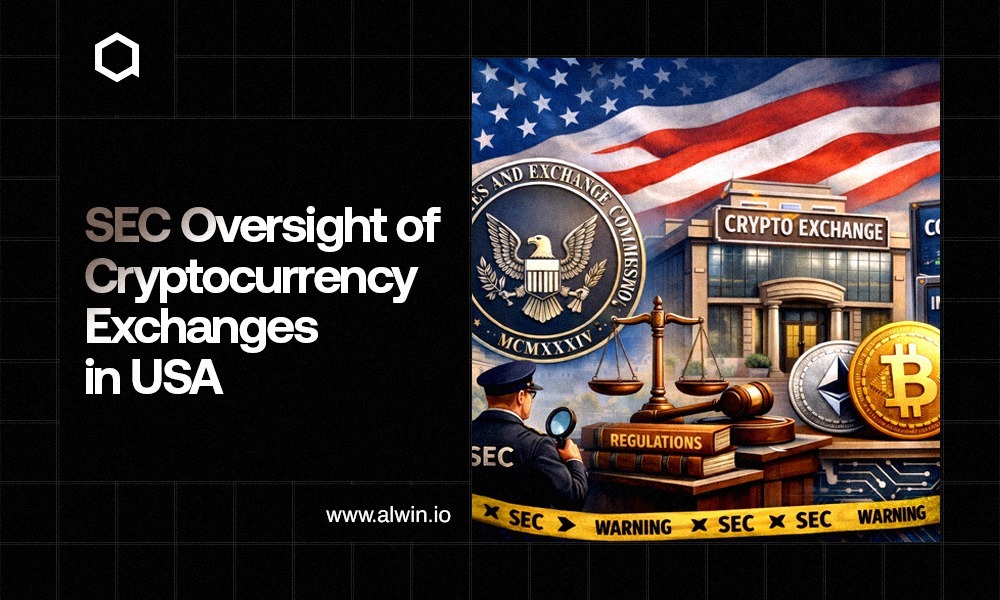Innovation and transformation are not static in this advanced world. Similarly, cryptocurrencies have emerged to transform the financial system in this generation. Cryptocurrency is a digital or virtual currency that uses cryptography for security, enabling secure, decentralized transactions over blockchain technology. Its growing significance in the global financial landscape stems from the increasing adoption of digital currencies for investment, settlements, and everyday transactions.
At the forefront of this transformation is the UAE, a dynamic hub for cryptocurrency that combines advanced technology with a forward-thinking regulatory environment. With its proactive stance on fintech innovation and initiatives like the Dubai Multi Commodities Centre (DMCC), the UAE is attracting businesses and investors eager to tap into the immense potential of digital currencies.
According to Statista, “The global transaction value of cryptocurrency worldwide is currently around 1.2 billion U.S. dollars and is forecasted to double by the end of the decade. The United Arab Emirates government is eager to establish Dubai as a global cryptocurrency hub, increasing the emirate’s global commercial presence and promoting economic diversification. This is supported by the fact that Dubai is already a leading financial center in the Middle East and North African region and has readily adopted cryptocurrency.”
- With 72% of consumers investing in Bitcoin in 2024, the UAE tops the Middle East in the use of cryptocurrencies.
- The average daily crypto traders in the UAE reached 500,000 in 2024, a 166% increase year-over-year, expected to hit 700,000 by year-end.
- The UAE ranks third globally in the Henley Crypto Adoption Index 2024, surpassing the US, UK, and Canada.
- About 30.4% of the UAE population, or 2.89 million people, owns cryptocurrencies.
Market sentiment reveals that 29% find digital assets convenient, 34% are active traders, and 22% use cryptocurrencies for daily payments.
What are Cryptocurrency Exchanges?
Cryptocurrency exchanges are digital assets trading platforms that allow users to buy, sell, and trade digital assets like Bitcoin, Ethereum, and other cryptocurrencies through online ecosystems. They function similarly to traditional stock exchanges by providing a marketplace where buyers and sellers can exchange cryptocurrencies for other digital currencies or fiat currencies like the US dollar or Euro.
There are two main types of cryptocurrency exchanges
Centralized exchanges: These exchanges are run by a central authority or company that acts as an intermediary, ensuring liquidity and matching buyers and sellers. Examples include Coinbase, Binance, and Kraken.
Decentralized exchanges: These operate on blockchain technology, enabling direct trading between users without intermediaries. They are autonomous decentralized applications running on public distributed ledger infrastructure.
Importance of Cryptocurrency Exchanges
In the world of digital assets, cryptocurrency exchanges are essential because they make it easier for consumers to purchase, sell, and trade cryptocurrencies. They offer liquidity, which facilitates speedy trade execution and aids in price stabilization. Diverse cryptocurrency options are available to users, encouraging portfolio diversification. Strong security procedures, such as two-factor authentication, are used by trustworthy exchanges to safeguard user data and money. Exchanges are crucial in accelerating the global acceptance of digital currencies by supporting innovation, streamlining fiat-to-crypto conversions, and building communities.
The Rise of Cryptocurrency Exchange in the UAE
The UAE's rise in cryptocurrency exchanges has been driven by favorable regulations, a growing interest in digital assets, and the region’s strategic position as a financial club. The UAE has implemented a proactive regulatory framework, highlighted by the establishment of the Virtual Assets Regulatory Authority (VARA) in Dubai and the Securities and Commodities Authority (SCA), which provide clear guidelines for cryptocurrency operations. This regulatory clarity promotes innovation and attracts numerous global exchanges and crypto firms to set up operations in the UAE.
Growing User Base
The nation is leading the Middle East in the adoption of cryptocurrencies, with an astounding average of 500,000 daily cryptocurrency traders, a 166% year-over-year gain, and 72% of local users investing in Bitcoin as of early 2024. Increased market values and the adoption of Bitcoin ETFs have stimulated investor interest even further.
Increased Interest and Adoption
Public acceptance of cryptocurrencies is also on the rise, with 29% of users recognizing them as a convenient way to hold wealth, while 34% engage in active trading and 22% utilize them for everyday transactions.
Centralized vs. Decentralized Exchanges
While centralized exchanges have experienced significant user inflow, interest in decentralized exchanges (DEXs) like Uniswap and Raydium is also growing, reflecting a diversification in trading preferences.
Regulatory Landscape in the UAE
The regulatory landscape for cryptocurrency in the UAE is characterized by a comprehensive framework that aims to assist innovation while ensuring security and compliance. Here are the key aspects of the regulatory environment:
Primary Regulatory Authorities
Securities and Commodities Authority (SCA): In the UAE, The SCA is the primary regulator of cryptocurrency activities. It establishes rules for crypto assets, licensing requirements for exchanges and wallet services, and classifying Initial Coin Offerings (ICOs) as securities to ensure investor protection.
Dubai Financial Services Authority (DFSA): Located within the Dubai International Financial Centre (DIFC), the DFSA regulates digital securities and investment tokens. It focuses on market integrity and investor safety.
Virtual Assets Regulatory Authority (VARA): Established in March 2022, VARA oversees Virtual Asset Service Providers (VASPs) in Dubai, aiming to enrich innovation while ensuring a secure environment for crypto businesses.
Licensing Requirements
To operate legally within the UAE's cryptocurrency space, businesses must obtain licenses from relevant authorities:
The SCA requires exchanges and wallet services to be licensed and comply with stringent anti-money laundering (AML) and counter-terrorism financing (CTF) regulations.
VARA mandates that VASPs adhere to specific operational guidelines, including compliance with risk management protocols and market conduct standards.
Compliance Standards
The UAE regulatory framework emphasizes high AML/KYC standards to reduce risks associated with money laundering and terrorism financing. Companies must implement robust security measures, conduct thorough background checks on users, and maintain transparent operational practices.
Regional Variations
While the federal laws apply across the UAE, each emirate has some autonomy in regulating cryptocurrencies. For example:
Dubai has implemented innovative regulations through VARA, designed to attract crypto businesses.
Abu Dhabi's Financial Services Regulatory Authority (FSRA) has also established guidelines for crypto activities within the Abu Dhabi Global Market (ADGM).
Cryptocurrency Exchange Development Company In UAE
WeAlwin is a premier cryptocurrency exchange development company in the UAE. We build crypto trading platforms for entrepreneurs, startups, and enterprises, utilizing the latest technology stack while following the crypto regulations and guidelines across the UAE.
Key Features of a Successful Cryptocurrency Exchange
Several crucial components must be present for a cryptocurrency exchange to be successful in order to provide a safe, effective, and user-friendly trading environment. The following are the main elements that need to be included:
Robust Trading Engine
Every cryptocurrency exchange is powered by its trading engine, which handles order book management, trade execution, and transaction processing. By reducing latency and downtime, a high-performance trading engine enables users to take advantage of market opportunities.
Security Features
Security is crucial for cryptocurrency exchanges due to the high risk of cyberattacks. Essential measures include Two-Factor Authentication (2FA) for added verification, cold wallets for secure offline storage of funds, end-to-end encryption to protect sensitive data during transmission, and DDoS protection to defend against Distributed Denial of Service attacks.
User-Friendly Interface
A clean, intuitive interface is crucial for attracting and retaining users. The platform should be easy to navigate, with clear options for trading, depositing, and withdrawing funds.
Liquidity Management
Sufficient liquidity is vital for a smooth trading experience. Exchanges can maintain liquidity through market-maker integrations and by offering various trading pairs to facilitate transactions.
Advanced Trading Features
Exchanges should offer sophisticated features including several order types (market, limit, and stop orders), alternatives for margin trading, and sophisticated charting tools with technical indicators to accommodate both inexperienced and seasoned traders. These products improve trade and aid in making well-informed decisions.
Comprehensive Cryptocurrency Wallets
Providing integrated wallets (both hot and cold) allows users to manage their digital assets conveniently and securely within the exchange platform.
Analytics and Reporting Tools
Incorporating analytics tools helps traders make informed decisions by providing insights into market trends, price movements, and trading volumes.
Customer Support
Offering responsive customer support through multiple channels (live chat, email, phone) is crucial for addressing user inquiries and issues promptly.
UAE Based Popular Crypto Exchanges
Several popular cryptocurrency exchanges in the UAE have gained traction due to the region's favorable regulatory environment and growing interest in digital assets. Here are some of the notable ones:
1. Binance
2. OKX
3. Bybit
4. Fasset
5. Rain
6. Emirex
7. Bite
8. CoinMENA
9. BitOasis
10. WazirX
How do you start a cryptocurrency exchange platform legally in the UAE?
Understand the Regulatory Framework
The UAE’s cryptocurrency regulation is overseen by two main authorities: the Security and Commodities Authority (SCA), which requires licenses for exchanges, and the Virtual Assets Regulatory Authority (VARA) in Dubai, which regulates Virtual Asset Service Providers (VASPs).
Obtain Necessary Licenses
Licenses are required from the SCA to operate a cryptocurrency exchange for activities like trading and wallets, including detailed documentation. If based in Dubai, comply with VARA’s licensing requirements focused on operations and risk management.
Implement KYC/AML Procedures
Establish strong Know Your Customer (KYC) and Anti-Money Laundering (AML) protocols to verify identities, monitor transactions for suspicious activity, and report any irregularities to authorities.
Develop Security Measures
Invest in security protocols to protect user data and funds, including Two-Factor Authentication (2FA), cold storage for assets, and regular security audits.
Create a User-Friendly Platform
Design an intuitive platform with easy navigation, featuring multiple trading pairs, advanced charting tools, and mobile compatibility for trading on-the-go.
Engage with Local Financial Institutions
Build relationships with local banks and payment processors to facilitate fiat transactions, ensuring support for various payment methods like bank transfers and credit/debit cards.
Market Your Exchange
Once operational, use effective marketing strategies to highlight your exchange’s features, security measures, and regulatory compliance to build user trust.
Conclusion
The UAE has emerged as a top hub for cryptocurrency exchanges due to supportive regulations and increasing interest in digital assets. By following the legal requirements, entrepreneurs can build secure and compliant trading platforms with a leading Crypto Exchange Development Company for a diverse user base. With the right strategy, launching a cryptocurrency exchange in the UAE can enhance the region's financial ecosystem and drive innovation in digital finance. As more users adopt cryptocurrencies as viable investments, the sector's growth potential is significant, making it an ideal time to enter the market.



